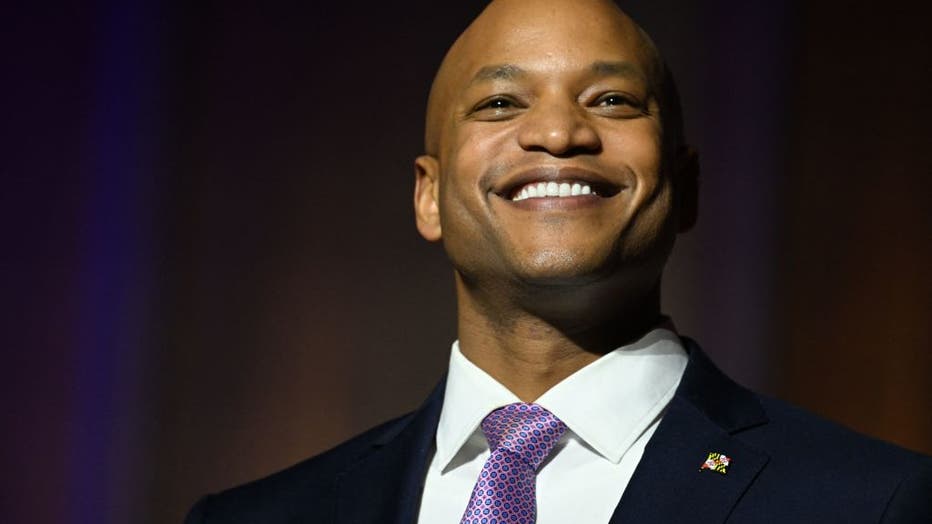Maryland Gov. Moore believes his ENOUGH Act is an innovative plan to tackle child poverty statewide
ANNAPOLIS, Md. - Maryland Gov. Wes Moore presented legislation he’s championing to address child poverty to state lawmakers on Wednesday, laying out a locally focused plan to attack the root causes of concentrated poverty statewide.
Moore, who served as the CEO of one of the nation’s largest poverty-fighting organizations before he was governor and has made addressing child poverty a top priority of his administration, testified on one of his signature measures this legislative session.
The Democratic governor said the ENOUGH Act, which stands for engaging neighborhoods, organizations, unions, governments and households, represents a statewide effort to channel private, philanthropic and state resources to communities with the highest rates of generational child poverty.
"Together we are going to target the places most in need of help, and we’re going to uplift those communities in partnership, because we believe that to fully address the challenge of poverty you need to actually engage the people on the ground, and that goes from urban cities to rural towns and to everywhere in between," Moore told the Maryland House Appropriations Committee.
The measure would guide place-based interventions in communities with disproportionately high numbers of children living in poverty. The measure includes $15 million to provide grants to help communities in what the governor described as a bottom-up initiative that puts an emphasis on local input.
"The premise is simple: Our communities will provide the vision. The state will provide the support, and not the other way around," Moore said.
Testifying in person, the governor held up a map that showed pockets of concentrated poverty throughout the state. He noted that the map hasn’t changed much in decades, a point of embarrassment for a state often cited as one of the nation’s wealthiest.
Moore said the program will focus on three core elements: safety, economically secure families and access to education and health care.

Maryland Governor Wes Moore looks on during an event with US Vice President Kamala Harris, not pictured, on the administration's efforts to lower costs for homebuyers, at Bowie State University in Bowie, Maryland, on February 22, 2023. (Photo by Jim
To illustrate poverty’s impacts, Moore testified about receiving a call from Baltimore Mayor Brandon Scott in the middle of the night last year. The mayor had called to inform him about a mass shooting in south Baltimore’s Brooklyn Homes public housing complex during a neighborhood block party. Two people were killed, and 28 were hurt. Moore said while one out of eight Maryland children live in poverty, one out of two children in that community do.
"You cannot understand what happened that night unless you’re willing to wrestle with what has been happening many, many nights before," Moore said. "Child poverty is not just a consequence. It is a cause. It causes pain to endure. It causes full potential to lie dormant, and that harsh reality is played out everywhere from western Maryland to the eastern shore, everywhere in between again and again and again."
Maryland Gov. Wes Moore unveils new juvenile crime bills
Maryland Governor Wes Moore joined with General Assembly leaders in Annapolis Wednesday to announce a new series of proposed laws he says will fix long-standing problems in the state’s juvenile justice system, and cut down on crime by young people. FOX 5's Tom Fitzgerald has the story.
While local jurisdictions around the country have used similar placed-based initiatives to address poverty, Moore described this initiative as a first-of-its-kind for taking a statewide approach to it.
Carmel Martin, special secretary of the Governor’s Office for Children, said the initiative will enable communities to partner with government, nonprofits, faith-based organizations, philanthropic groups, labor unions, small businesses and corporations, with state guidance.
"The bottom line is that the ENOUGH Act will spur philanthropic and federal investment, revitalize communities and drive the state’s economic competitiveness for the long term," Martin said.
The measure has bipartisan support.
"From Crisfield to west Baltimore to Cumberland, to everywhere in between, I haven’t been this excited about a piece of legislation in a long time, and I just want you to know, man, I’m in," Del. Carl Anderton, a Wicomico County Republican, told the governor.
The Associated Press contributed to this report.


